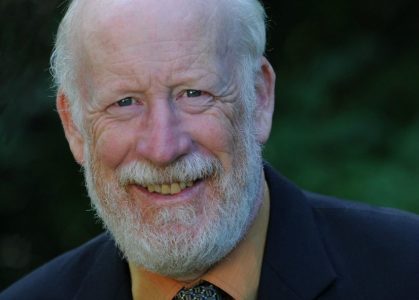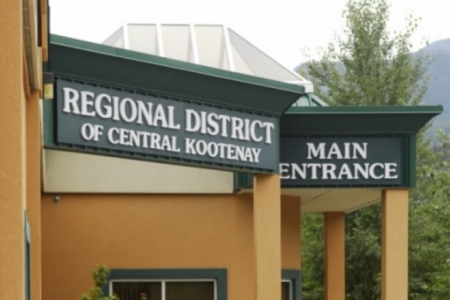Kootenay Columbia candidates grilled at Chamber Debate
A large crowd gathered Thursday at the Prestige Inn Lakeside Resort in warm and intimate settings to listen to Kootenay Columbia candidates from the four major parties explain their positions on topics ranging from municipal infrastructure to the youth vote at the Nelson Chamber of Commerce Debate.
Host Glenn Hicks allowed us a sneak peak into his living room as he kept the conversation moving, never allowing the candidates to wax political and keeping the discussion tight and focused.
Unfortunately for Green Party candidate Bill Green, this meant opening the night’s dialogue with a rather blunt and direct question.
“Do you not think that the way this is unfolding in the majority of the public, in the mainstream media, the main leaders, that you’re not getting any traction because ultimately, you’re a party with one elected MP…Do you not think you’re being marginalized, and it’s appropriate you’re being marginalized because you guys are a great movement, but you’re just not a political entity.”
Green replied by explaining that in this riding in particular, the Greens have been given equal respect and equal opportunity.
“We’re not marginalized from the conversations in this riding. We’re getting our message across and people are listening and we’re gaining in the polls,” he said.
Hicks then put the same question to Liberal candidate Don Johnston, who replied by explaining that proportional representation, a major issue in the upcoming election, would get rid of this problem facing the Greens.
“Well the reality is that one of the critical issues in this election will make their voice count, and that’s moving from a first past the post system to a proportional government…that plurality of voices will make us stronger and make our conversations more deep, more meaningful, and it will lead to better decisions and better government,” Johnston said.
The NDP vs. The Conservatives
Living in Nelson, one only has to look at the history of the area to realize that at the end of the day, the political battle will be fought between The NDP and The Conservatives.
Hicks made no bones about it, simply stating: “Liberal candidates don’t win here…How on earth can a Liberal win in this riding for a change?”
Johnston explained that for him personally, Nelson is home, and while he is aware that he has a challenge in front of him, he believes his party is offering changes the others are not.
“This isn’t just about a change in government, it’s about a change in the way we govern. I believe the Liberal platform offers this in spades,” Johnston said.
Stetski was asked a similar question, and he replied by stating that his party shares a lot of similar ideas with the Greens and Liberals, and that it’s just a matter of scale.
“We have a lot of the same interests on many things, and we’re arguing how much of a priority different things will be in our lives,” he said.
“Quite frankly, the three of us here in our parties have a bad habit over time of splitting the progressive vote, and allowing the conservatives to form government. We need to move to proportional representation so that every vote will count in the future.”
Wilks had a rather sly response when asked whether or not the Green or Liberal parties were a threat.
Rather than espousing why the Conservatives are different, he simply encouraged people to vote for who they wanted…on the progressive side of things, thus keeping that vote split and allowing the Conservatives another majority.
“It’s an uphill battle for both the Liberals and the Greens, because Kootenay-Columbia is so well seeded. It’s either Conservative or NDP. But that doesn’t take away from the fact that anyone who wants to vote Green, or vote Liberal, should,” Wilks said.
Stephen Harper
Walking around town one can see a plethora of anti-Harper messages, from stop signs to t-shirts, the major driving force behind this upcoming election is getting rid of Stephen Harper.
It was only a matter of time before this topic was going to come up in the debate, and you could tell that Wilks was waiting for it.
“How unbelievably challenging is it for you, when you have to be an apologist for one of the least likeable men in the nation,” Hicks asked.
“When you’re knocking on doors, are you actually trying to evade and avoid that discussion?”
“I know what I need to do in the riding, and I know what I need to do as a member of parliament. I’m proud of the low tax plan, I’m proud of creating jobs, and I’m proud of the economy and that’s all because of Stephen Harper. Stephen Harper will decide what he wants to do down the road, but until then he’s the leader of the Conservative Party and I stand behind him.”
Personal Platforms for Kootenay-Columbia
Beginning with Stetski, Hicks then asked the candidates what they would do specifically for this riding.
“First of all we said we would decriminalize marijuana, and bring in a national daycare program,” Stetski said.
Wilks was next, and stated that municipal and regional infrastructure was his biggest focus.
Bill Green said that his focus would also be infrastructure, but was quick to add a “green” before his description. Green continued by saying the other major focus for him in the Nelson region and Kootenay-Columbia on the whole was a “guaranteed livable income.”
Johnston was last to chime in with his plans for the region. Agreeing with the others on infrastructure, with an emphasis on social infrastructure, housing for seniors, affordable housing and money for daycares.
A voice for the party or a voice for the riding?
“How can I be so sure that you will be a real voice for this riding,” Hicks asked the candidates.
Beginning with Johnston, who replied: “ A huge part of the Liberal platform is open and transparent government…It’s very clear that that there are limited circumstances where you’re required to vote with the party. One is on the platform, and two is the budget.
“The third is anything that is a contradiction to the Bill of Rights. Other than that there is a real emphasis on returning the balance of power…redistributing it through the MP’s, and members are of parliament are expected to be responsible and accountable to their constituents.”
Stetski emphasized his plan, when beginning his tenure as mayor of Cranbrook, to “answer every letter, every email, every text and every phone call…When I go to Ottawa I continue that same approach. My job is to represent the people of Kootenay-Columbia.”
Wilks brought up the fact that as a result of his work, Nelson received three Canada 150 Grants.
“At the end of the day it was me that made the call to the Minister.”
Bill Green explained his view that reducing the power of the party leaders was an important step that needs to be taken.
“Our democracy is badly tattered. We have to fix the way Parliament works… It should fully be the decision of people in this riding about who is going to represent them, and the party leader should be able to be recalled by a vote within the caucus. There are fundamental changes that we need to make if we’re going to make Parliament work and make MP’s work for their constituents again.
The Infrastructure Issue
Hicks began the next round of questioning by saying that he believed the Liberal Party leader had pulled off a “master stroke” by saying he was willing to run a huge deficit to fix the crumbling infrastructure around the country.
“Justin Trudeau has turned around said, let’s go $20 billion into the red and sort this mess out. That’s what Canadians really want in municipalities.”
Wilks shot back by stating that the Conservatives had already brought forward the largest infrastructure plan in Canadian history
“We have the largest plan in place now, at $53 billion, and we’ve reduced taxes on all fronts. Why you have to go $34 billion in debt, over the period of an election, is a significant amount of money and they have no way of costing that out.”
Green countered this by saying, “the issue is long-term, structural deficit, and what that means is because of the tax cuts by the Conservative government, year in, year out, there’s not enough money to fund the services that Canadians expect. Our commitment is predictability. $6.5 billion per year, 1% of the GST, we will dedicate to municipal infrastructure.”
Hicks asked Johnston how he could believe that Canadians would accept that level of debt for years and years to come.
“Simply put, there’ll never be a better time to do it, and never be a stronger need. When I was first nominated I toured the riding and talked to virtually every mayor and the number one issue is infrastructure. If your house develops a leak in the roof, and you need to take out another addition to your mortgage, you’re going to do it because it’s an investment in that house.”
On the NDP side, Stetski pointed out that his party has costed out everything they plan to do, but the Liberals, despite lots of talk, have no concrete plan that lays out the costs, and neither do the Conservatives.
“We are going to balance the budget, and we’re showing how we’re going to do it.”
Fossil Fuels and Renewable Energy
A topic that is growing increasingly more important in politics is Canada’s reliance on fossil fuels and a fall from grace when it comes to renewable energy options.
“Why won’t the Conservatives realize that this is the generational moment where it’s time to put billions into green infrastructure, because European nations and nations all over the planet have go it, why haven’t you,” Hicks asked Wilks.
“We’ve put $1.2 billion to aid third-world countries dealing with climate change, $1.5 billion into the Green Action Fund, that’s what we’ve done. But we also recognize that we’re a natural resource export country. Until we find a replacement for carbon, and I hope we do someday, but until then we need metallurgical coal,” Wilks responded.
He then went on to say that like it or not, the oil sands are a huge resource for the economy of Canada, and that we need to balance that with an environmental policy.
Stetski’s policy on energy was simple and succinct:
“We’re going to stop the subsidies to oil and gas, and we’re going to put money into research and development into green technology. The good part about green technology is that the jobs stay right in the community. You don’t have to go to Alberta; you don’t have to Northeast BC. Solar, thermal, bio and wind energy are community-based jobs that are good for the community and good for the environment.”
Johnston said that the Liberals would also stop the subsidies to oil and gas, and that while we are a natural resource country, dedicating money to research and develop more sustainable technologies could become a commercialized and marketable export.
The Green Party took an interesting but expected stance on the energy question. Green said that because we are a private sector economy and the government should provide incentives to shift private sector investment from the fossil fuel industry to the renewable energy sector.
The story originated at The Nelson Daily.

























Comments